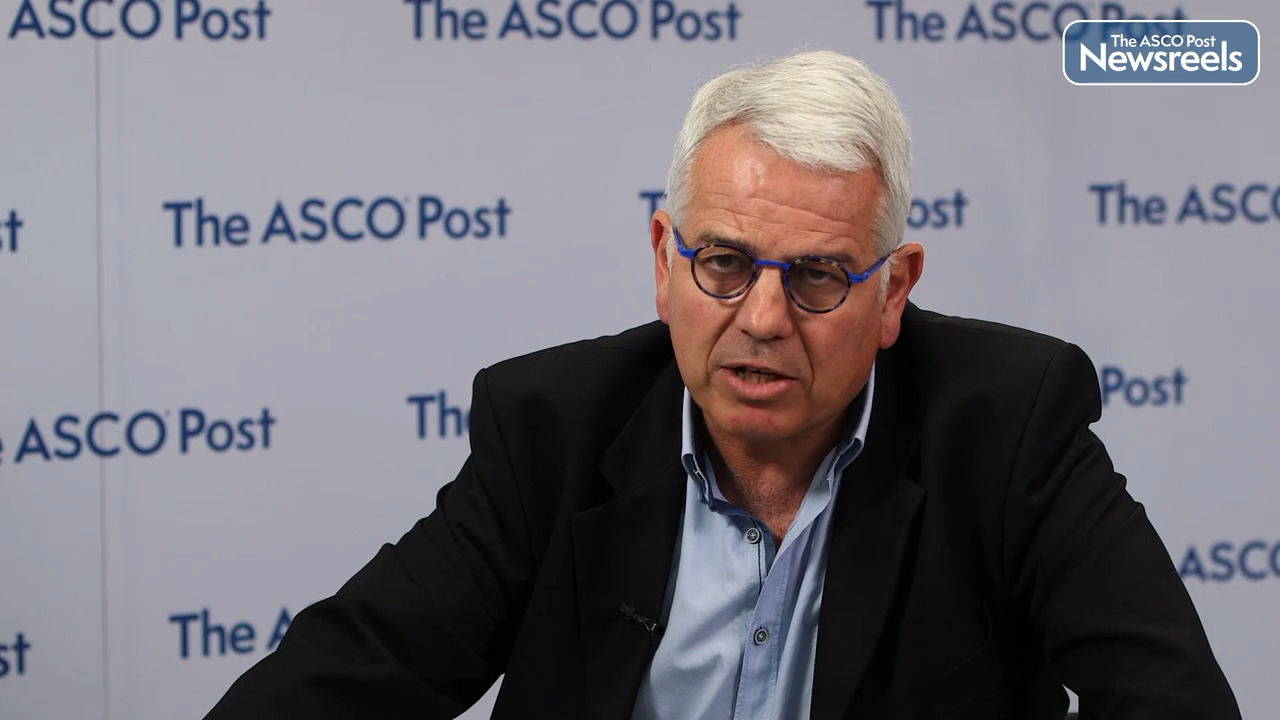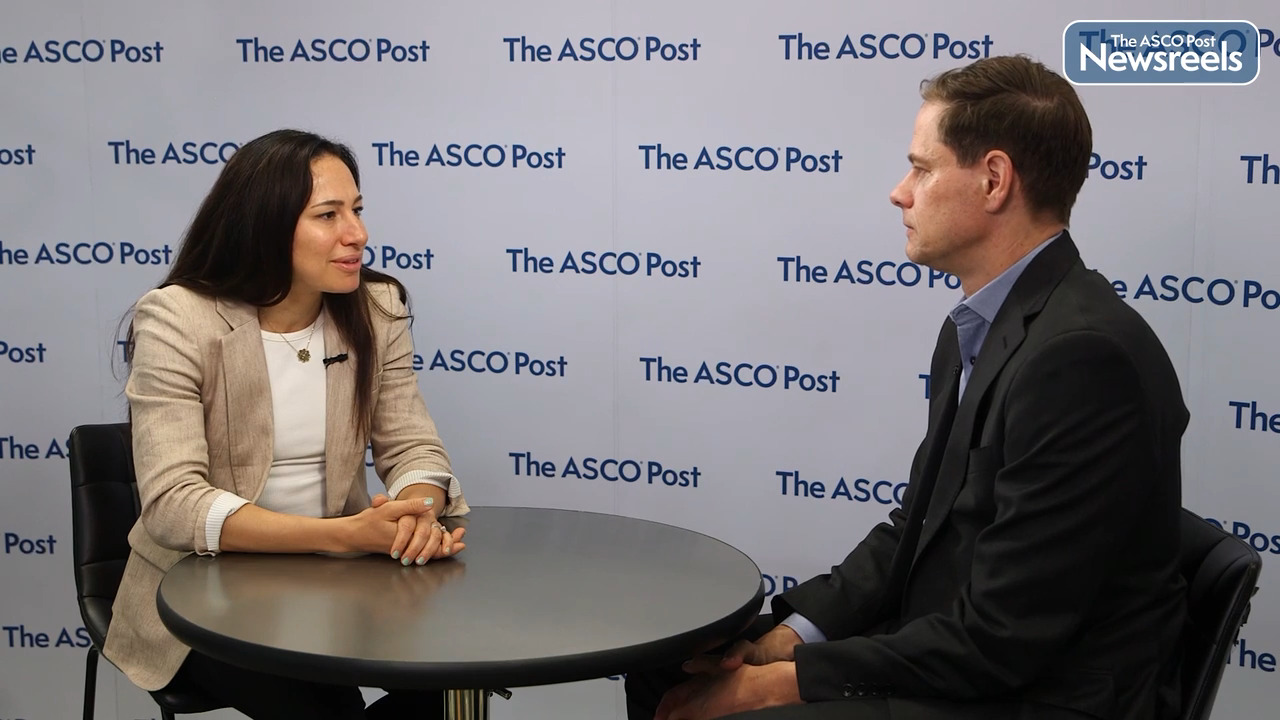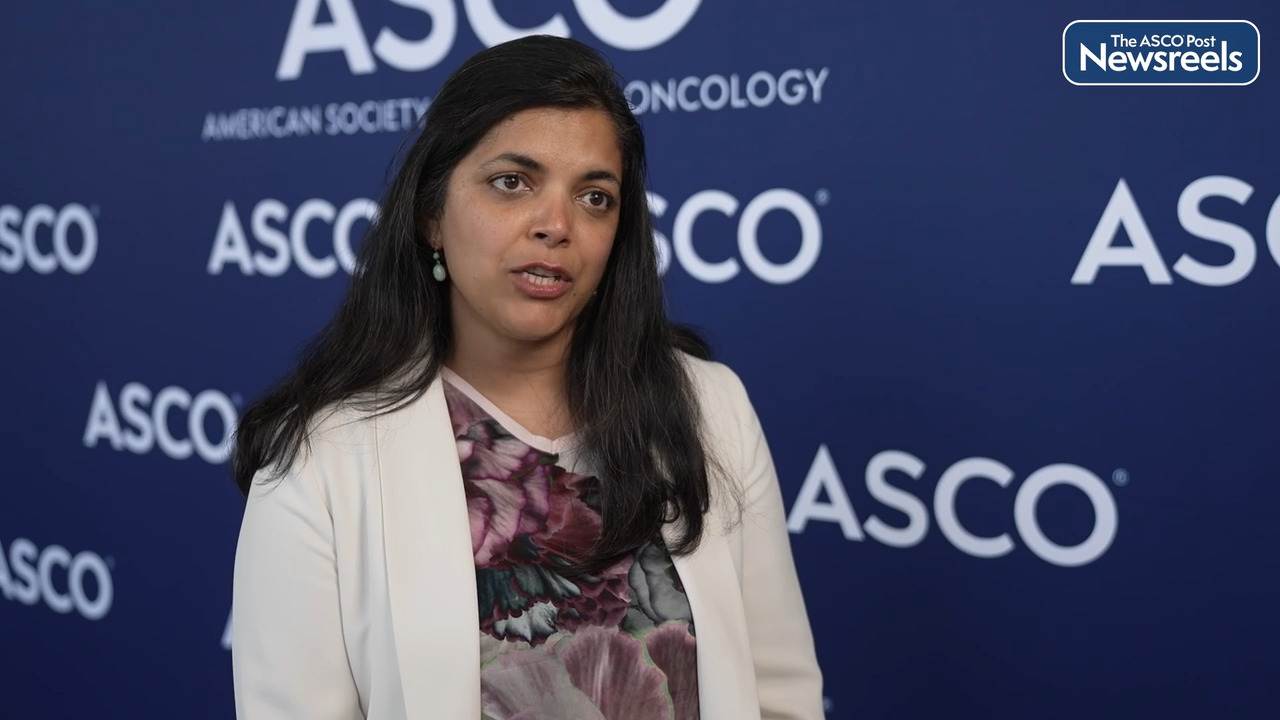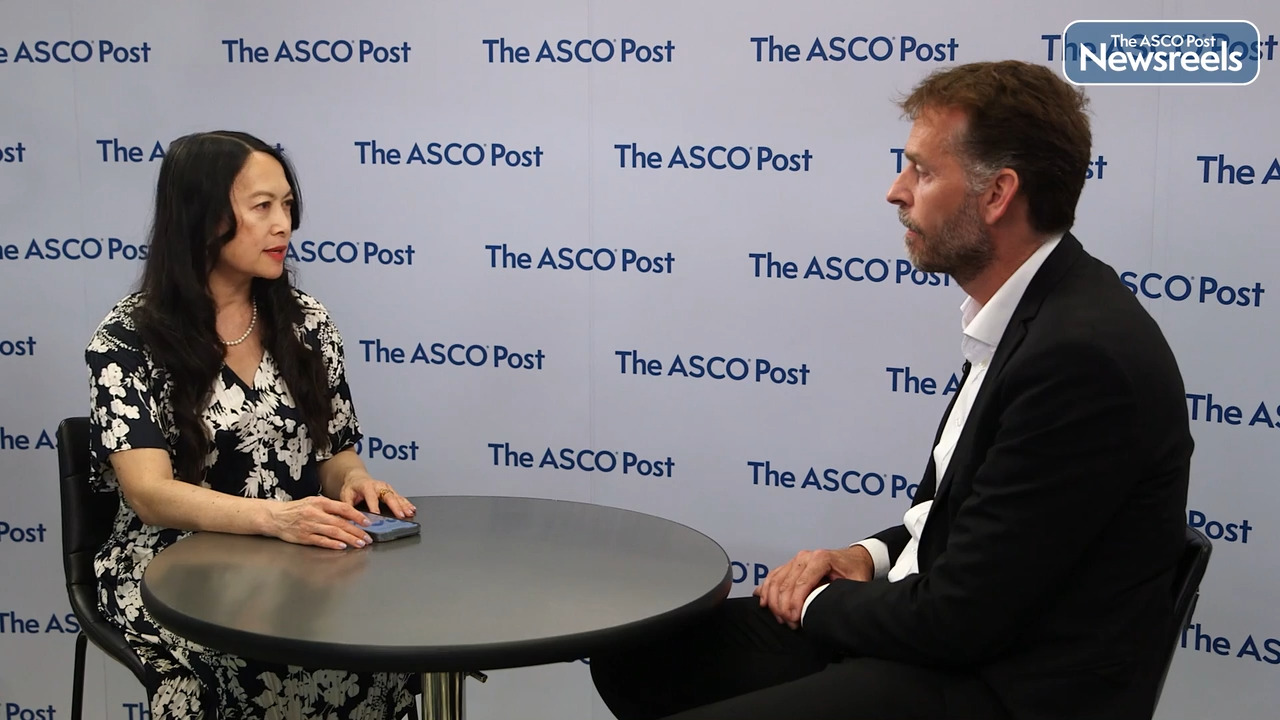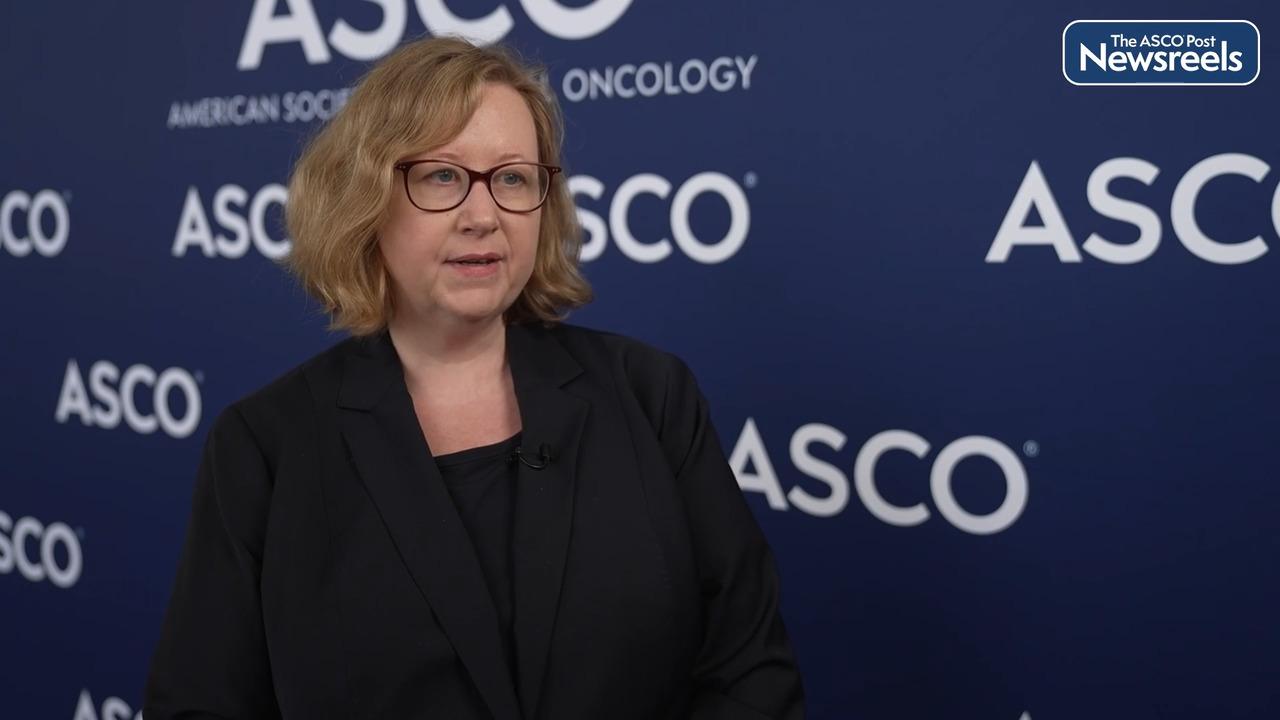Ajay K. Nooka, MBBS, Relapsed or Refractory Multiple Myeloma: Efficacy and Safety Data for Elranatamab
2023 ASCO Annual Meeting
Ajay K. Nooka, MBBS, of Winship Cancer Center of Emory University, discusses findings from a pooled analysis of MagnetisMM studies. The data showed that, in patients with relapsed or refractory multiple myeloma who have not yet been treated with B-cell maturation antigen–directed therapies, elranatamab was efficacious and well tolerated.
The ASCO Post Staff
Christian Pfister, MD, PhD, of Rouen University Hospital, discusses phase III results from the VESPER trial, which showed that dose-dense methotrexate, vinblastine, doxorubicin, and cisplatin provided a better overall survival rate at 5 years and improved disease-specific survival compared with gemcitabine as perioperative chemotherapy in patients with muscle-invasive bladder cancer (Abstract LBA4507).
The ASCO Post Staff
Rana R. McKay, MD, of the University of California, San Diego, and Brian I. Rini, MD, of Vanderbilt-Ingram Cancer Center, discuss the 5-year follow-up results with the combination of a checkpoint inhibitor plus a VEGFR tyrosine kinase inhibitor as first-line treatment for patients with advanced clear cell renal cell carcinoma (RCC). Pembrolizumab plus axitinib continued to demonstrate improved survival outcomes as well as overall response rate vs sunitinib for patients with previously untreated disease (Abstract LBA4501).
The ASCO Post Staff
Manali K. Kamdar, MD, of University of Colorado Hospital, discusses the treatment landscape for the 30% to 40% of patients with diffuse large B-cell lymphoma (DLBCL) whose disease will relapse. Patients who experience relapse within 1 year of chemoimmunotherapy have poor outcomes with autotransplantation, but chimeric antigen receptor T-cell therapy has shown efficacy and manageable toxicity.
The ASCO Post Staff
Cathy Eng, MD, of Vanderbilt-Ingram Cancer Center, and Lars Henrik Jensen, MD, PhD, of the Danish Colorectal Cancer Center South and the University Hospital of Southern Denmark, discuss phase III results from the Scandinavian NeoCol trial, which showed that neoadjuvant chemotherapy is not superior to standard upfront surgery in terms of disease-free and overall survival in patients with colon cancer, although there are certain circumstances when this approach may have more favorable outcomes (Abstract LBA3503).
The ASCO Post Staff
Penelope Bradbury, MBChB, of Canada’s Princess Margaret Cancer Centre, discusses phase III findings showing that, in patients with treatment-naive unresectable pleural mesothelioma, cisplatin and pemetrexed with pembrolizumab improved median overall survival with acceptable tolerability (Abstract LBA8505).
